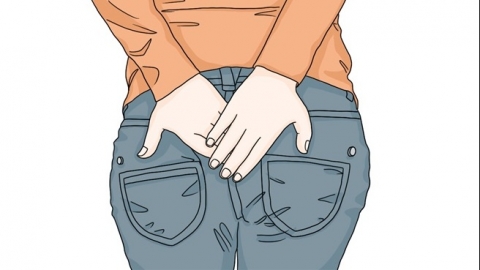What causes pain in the buttocks when sitting on a hard surface?
Generally, the main causes of buttock pain when sitting on a hard surface include localized pressure and stress, tight gluteal muscles, ischial bursitis, myofascial inflammation of the buttocks, hemorrhoids, and others. If discomfort occurs, it is recommended to seek timely medical evaluation and treatment at a正规 hospital. Specific explanations are as follows:
1. Localized Pressure and Stress
A hard seat lacks cushioning, leading to prolonged compression of soft tissues in the buttocks, impaired blood circulation, and nerve irritation that causes pain. It is advisable to choose seats with soft padding or place a breathable cushion on hard seats. Stand up and move around for 5 minutes every 30 minutes of sitting to avoid maintaining a seated posture for long periods, thereby promoting blood flow in the buttocks.

2. Tight Gluteal Muscles
Prolonged sitting or poor posture can keep the gluteal muscles in a constant state of tension. When sitting on a hard seat, increased muscle compression may trigger pain. Maintain an upright sitting posture with a straight back and avoid slouching. Perform stretching exercises during work breaks, such as standing leg kicks, to relax the gluteal muscles. Applying heat therapy to the buttocks can also help relieve muscle tension.
3. Ischial Bursitis
The bursa near the ischial tuberosity may develop aseptic inflammation due to prolonged pressure and friction from sitting on hard seats. When sitting, the inflamed area is compressed, resulting in noticeable pain. Under medical guidance, medications such as celecoxib capsules, diclofenac sodium sustained-release tablets, or ibuprofen sustained-release capsules may be used. Avoid prolonged sitting on hard chairs. In severe cases, bursal aspiration may be performed; after the procedure, minimize pressure on the buttocks.
4. Gluteal Myofasciitis
Inflammation of the gluteal muscle fascia may occur due to strain or cold exposure. Sitting on a hard chair compresses the fascia, worsening pain. Under medical supervision, medications such as loxoprofen sodium tablets, naproxen sodium tablets, or etoricoxib tablets may be taken. Combine treatment with local massage and physical therapy. Keep the buttocks warm and avoid overexertion.
5. Hemorrhoids
Prolonged sitting on hard chairs can impair venous circulation in the anal region, obstruct venous return, and lead to hemorrhoids. When sitting, the hemorrhoids are compressed, causing pain and a sensation of heaviness. Under medical guidance, treatments such as compound alginated suppositories, Ma Yinglong Musk Hemorrhoid Ointment, or diosmin tablets may be used. Avoid prolonged sitting, maintain cleanliness around the anus, eat a light diet, and prevent constipation.
In daily life, prioritize choosing soft, breathable seating to reduce buttock pressure; stand up and move regularly to avoid prolonged sitting; perform appropriate gluteal muscle exercises such as glute bridges to enhance muscular support; keep the buttocks warm to prevent cold exposure; and seek prompt medical attention if pain persists or worsens to determine the underlying cause.




